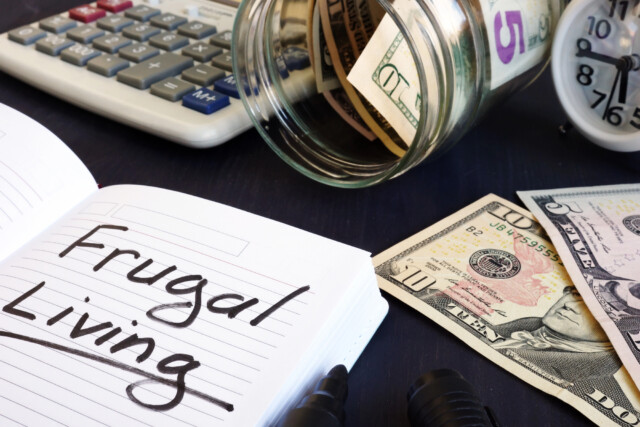Wealthtender is a trusted, independent financial directory and educational resource governed by our strict Editorial Policy, Integrity Standards, and Terms of Use. While we receive compensation from featured professionals (a natural conflict of interest), we always operate with integrity and transparency to earn your trust. Wealthtender is not a client of these providers. ➡️ Find a Local Advisor | 🎯 Find a Specialist Advisor

Personal finance experts will tell you that budgeting well is at the heart of good money management. It’s true, but any budget is only as good as the method you use to make it. Sloppy budgeting could even be worse than no budgeting at all. If you leave important categories out of your budget, you’ll be lulled into a false sense of security, thinking you have more disposable income than you do. These are a few of the vital expenses you might be forgetting to include in your budget.
Annual and quarterly expenses
I wrote recently about how to carry out an annual spending review in order to work out your monthly budget. If you just track your spending for a month and think you’ve included most of your monthly expenses, you’re probably way off track. Annual and quarterly bills, expenses and subscriptions need to be factored in.
Gifts
It’s easy to ignore gift buying as an expense category, or lump it in with discretionary spending. But for many of us, gifts are a major expense. Birthday, holiday, wedding, anniversary and baby shower gifts can really add up, and probably deserve a separate category in your budget.
Car and house maintenance and repairs
Many of us factor in most of our transportation and housing costs, such as car payments, gas, insurance, and mortgage payments or rent. But many of us forget that cars and houses need both maintaining and fixing from time to time, and that’s almost always expensive.
Vacations
For most people vacations are an occasional/annual expense, but including vacation or travel money in your monthly budget will let you spread the cost. You might also want to make a budget for ‘emergency travel’ if, for example, it’s possible you’ll need to travel to help out a family member in another state.
Pet care
Having pets can be expensive even when things are going well. And unexpected vet’s bills can easily blow a big hole in your budget, especially if like many American pet owners, you don’t have pet insurance. Factor in all your pet expenses, including pet sitting/boarding kennels for when you have to travel.
Healthcare costs
Most people include health insurance in their budgets but don’t always consider few insurance plans cover everything, and many high deductible plans will leave you with significant amounts to pay towards many routine and unexpected healthcare costs. It’s important to set aside money for healthcare costs, whether that’s via a health savings account, or your regular budget. Otherwise you’ll likely be one of the 25% of Americans who end up skipping medical care due to high costs.
Preventative healthcare
Bearing in mind the cost of healthcare, many people think it’s worth having a budget for preventative measures that help them avoid ill health. This is where you’d put things like personal training, health supplements, massages, health club memberships and other paid services that prevent ill health.
Fines
Staying on the right side of the law is always a good idea, but few of us get through life without the occasional speeding, parking, or other ticket. Other ‘fines’ include things like late payment fees on credit cards or other payment plans and overdraft or low balance fees on bank accounts. This doesn’t necessarily have to be a separate budget category. Just be aware that these are really common unexpected expenses that do tend to crop up.
Replacements
Another common but ‘unexpected’ expense is replacing something big, from a phone to a refrigerator. These are occasional expenses so we forget to budget for them, but they’re not really unexpected. Things break. Technology gets outdated. Factor in a fund to replace those things that could easily break, but that you can’t really live without for long.
Fun
I’m a big fan of including fun money in your budget. A lot of people forget to, thinking they’ll just use ‘whatever’s left over’ for fun. By including fun money you can have some guilt-free fun knowing you allowed for this in your budget. It also avoids the issue of spending all your ‘leftover’ budget on fun. Because if you’re lucky enough to have disposable income you should be saving and investing some of it. Not using it all as discretionary spending. By having ‘savings’ and ‘fun’ as budget categories, you plan for both.
Are you ready to enjoy life more with less money stress?
Sign up to receive weekly insights from Wealthtender with useful money tips and fresh ideas to help you achieve your financial goals.
Karen Banes is a freelance writer specializing in entrepreneurship, parenting and lifestyle. She writes articles, website content, ebooks and the occasional award winning short story. Her work has appeared in a range of publications both online and off, including The Washington Post, Life Info Magazine, Transitions Abroad, Brave New Traveler, Natural Parenting Group, and Copia Magazine. Learn More About Karen
Wealthtender is a trusted, independent financial directory and educational resource governed by our strict Editorial Policy, Integrity Standards, and Terms of Use. While we receive compensation from featured professionals (a natural conflict of interest), we always operate with integrity and transparency to earn your trust. Wealthtender is not a client of these providers. ➡️ Find a Local Advisor | 🎯 Find a Specialist Advisor







